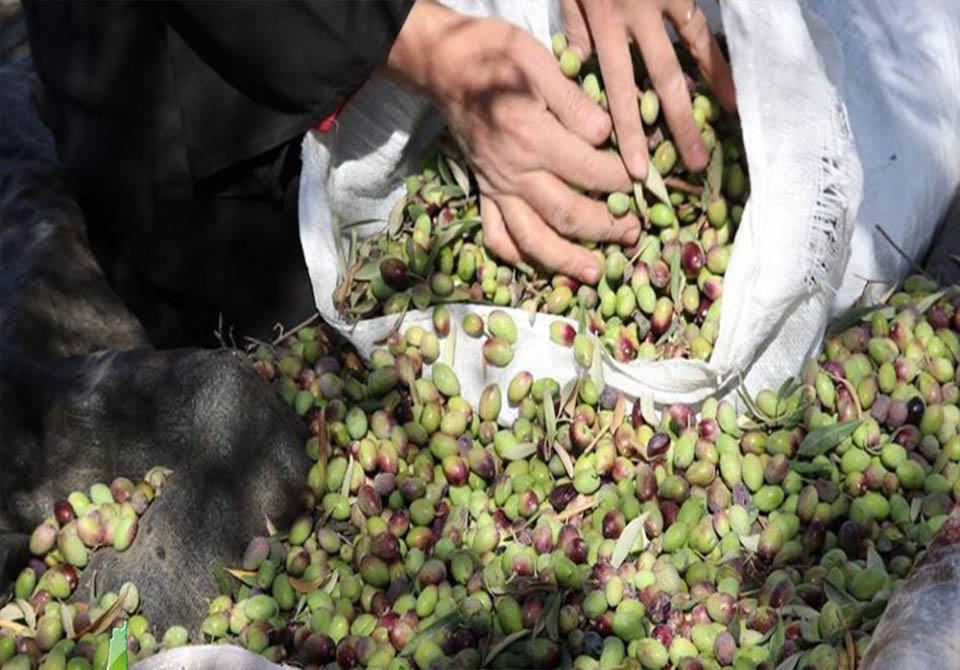Palestinian farmer Abu Basem

Israeli occupation marring the joy of the olive season
Abu Basem stands hopelessly rubbing his hands, as he touches the rest of his olive trees in a valley north of Salfit, looking right and left, and recalling memories when joy was all over his house with the start of the olive harvest, which now turned into tears and pain.
This is the story of farmer Ahmad Eshtayeh, 80 years old from the city of Salfit, who inspects the rest of his olive field north of Salfit behind the apartheid wall, which swallowed 90% of Salfit’s land, leaving too little for him to cultivate.
Killing the joy
Abu Basem says: “We used to get ready for the olive season with joy and happiness, picking fruits while chanting Palestinian folkloric songs, while today we hear songs in Hebrew coming from the settlement of Ariel, which robbed our lands north of Salfit.”
He adds, “The Israeli occupation is killing our joy as we cross the gates of the wall to harvest olives in the fields that lie behind. The settlements stole my land twice; the first was in Wadi Abdul Rahman and the second was in Ezbet Abu al-Basal to build more factories for settlers.”
The journey of torment
Regarding the timing of the olive harvest, he adds that with the Dawn Prayer, farmers prepare themselves to cross the gate which opens from the northern side of the city of Salfit. “I prepared the equipment used in the olive harvest, and offered the Dawn Prayer, and then I went out around 4:30 A.M. and waited until a soldier opened the gate.”
He continued: “The soldier ordered the farmers to show their identities, amid some insults, and then kept our IDs with him, and inspected the equipment we brought along, and then allowed us to enter until 4:00 P.M., threatening those who will be late with punishment.”
“We used to enter and leave our fields whenever we wanted, and we would sleep in our land, and we would care for it whenever we liked,” said Abu Basem. “Now it takes a permit or a humiliating search and a deliberate humiliation to get in and collect the olives, and if one fell and broke his hand, he would have to wait for the gate to open on time,” he continued.
He noted: “Israeli soldiers put us in prison, and they kill the joy of picking up the fruits during the harvest season, where farmers are not allowed to leave even if they had an accident like a snake bite on the grounds that the time of opening the gates is a military order and cannot be changed.”
Researcher Khalid Maali confirms that the olive season behind the wall and near the settlements is very dangerous, and that short periods of olive picking make farmers in constant anxiety and confusion for fear over their olive fields.
He pointed out that the Ministry of Agriculture set the date of 12 October 2018 as the most proper date to harvest olives, but many farmers, especially in the areas near the coast, west of Salfit, Tulkarem and Qalqilya and in lands behind the wall do not adhere to the deadline because of the exceptional situation they live in, as the areas near the coast have a warm atmosphere which makes olives ripen early.
He added that the occupation, by its restrictions on farmers, contribute to reducing the produce due to the lack of care for the land and bulldozing and uprooting olive trees by Israeli forces.
Source: The Palestinian Information Center

WRITE YOUR COMMENT